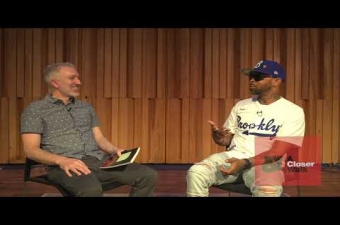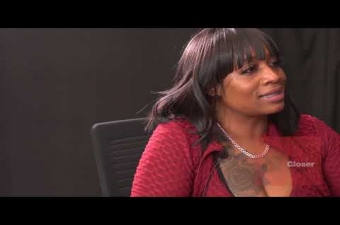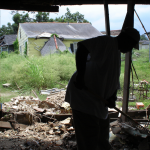The Big Easy
3815 Frenchmen StreetNew Orleans LA 70122
The Big Easy nightclub hosted showcases in the early 1990s that young rappers including Juvenile and Partners N Crime used to break into New Orleans’ burgeoning hip-hop scene. The venue was crucial to the spread of bounce music, with two of the genre’s original leading labels, Cash Money Records and Big Boy Records, signing artists off of its stage.
Juvenile’s first show outside of his neighborhood was here, when his signature hit “Bounce for the Juvenile” caught fire in 1992. “The whole city came out to see me,” he told musicologist Dr. Holly Hobbs. Among those in the crowd was Sporty T, who’d been part of Ninja Crew, one of New Orleans’ earliest rap groups in the mid-1980s. Juvenile’s performance inspired him to take up the new sound of bounce:
Most [bounce artists] would say everything three times and move on and Juve came with the story telling with bounce. Then he had a good producer at the time, DJ Precise. And what really made me want to do [bounce] is that I saw Juvenile and Precise performing in the Big Easy and Juvenile got off and I was like yeah that’s what I want to do right there.
The rapper Mista Meana was a regular at the Big Easy around this time. He writes in his memoir that when he started competing in its weekly talent shows, he routinely won the $500 prize. Once he got to know the club’s security guards, he was able to bring in his new partner, Kango Slim, who was only 15. Prompted for a name before their first appearance as a duo, Meana, came up with Partners N Crime on the spot (he was inspired by the Robert Townsend series). PNC, as they are often called, went on to become one of the longest-running bounce acts in New Orleans.
Cash Money Records
By 1993 Cash Money Records was sponsoring the showcases, as co-founders Bryan “Baby” Willaims (later called Birdman) and Ronald “Slim” Williams scoured the city for talent. Per a notice in OffBeat magazine: “Contestants are judged by audience applause. If you’d like to enter, sign up at the Big Easy on Fridays before the contest (which starts around 12:30 a.m.).”
As Mista Meana writes: “The host was a guy named Big Heavy … Big Heavy made the announcement that if you win the Cash Money Record [sic] showcase three times in a row, you would win a record deal with the label.” PNC won three straight, but Meana didn’t feel the vibe at the Cash Money office so they didn’t make a deal.
The Big Easy showcases still paid off for the Williams brothers, though: they signed the artist Ms. Tee after seeing her perform there with bounce pioneer Cheeky Blakk. As Ms. Tee writes in her memoir, “Cheeky used to sneak me in the club because at the time I was 13.” Slim gave her his card after the show, and at 14 she became the first woman to join the label, where she’d earn a reputation for singing hooks on many of its records.
Cash Money’s biggest seller in its early years was UNLV, a group delivering gangsta rap over bounce beats. One of their rappers, Lil Ya, recalled that, around 1993, the label booked them “at The Big Easy with Bobby Marchan.” A former emcee at the Dew Drop Inn and R&B artist, Marchan hosted talent shows across New Orleans in the 1980s and 90s, and used his music industry experience to help professionalize the local hip-hop community, including Cash Money in its formative stages.
According to Mista Meana, not long after PNC declined to sign with Cash Money, Baby invited them to open for UNLV, and when UNLV took the stage they dissed PNC in a song. At the next week’s showcase at the Big Easy, PNC answered with a diss of their own against UNLV “and the crowd went crazy.”
Big Boy Records
By the time PNC took aim at UNLV, Cash Money had stopped sponsoring the Big Easy showcases, and its top competitor, Big Boy Records, took them over. Big Boy co-founder Chuck Temple was in the house for PNC’s performance, and signed them two days later.
PNC’s debut album on Big Boy in 1994 included “Pump Tha Party,” now a local classic, as well as their UNLV diss. The release escalated a beef between Big Boy and Cash Money that became one of the most heated in local hip-hop. After the Big Boy artist Mystikal got involved, UNLV targeted him in the infamous “Drag ‘Em ‘N’ Tha River.”
Co-founded by Rob Shaw and producer Leroy “Precise” Edwards, Big Boy’s first release, in 1993, was the bounce record Sporty T cut after hearing Juvenile at the Big Easy (Temple reportedly financed the project with a $20,000 jackpot from a slot machine). Big Boy’s roster came to include Fiend, Black Menace, G-Slimm, and Ghetto Twinz, though its best seller was Mystikal, whose debut album, produced by Edwards, went gold after being re-released by Jive Records in 1995.
Big Boy went toe-to-toe with Cash Money from 1993 until 1996 or 97. The turning point in the rivalry came after the Williams brothers overhauled their roster, adding Juvenile and Turk to form the Hot Boys, while Fiend and Mystikal left Big Boy for Master P’s No Limit Records.
Early incarnations and a stymied revival
This space first became a nightspot in 1978, when owner August Williams opened the triumphantly named Golden Viking Disco, before retooling as New York, New York the following year.
By 1984 it was Foxy’s, which, in addition to live music, booked everything from stage plays and poetry readings to plus-size fashion shows. Performers through the mid- and late-1980s included bands led by guitarist Ernie Vincent, of “Dap Walk” fame, and trumpeter Porgy Jones, who’d played with everyone from virtuoso singer Johnny Adams to superstar Otis Redding.
In 2006, several years after The Big Easy closed, and fifteen months after Hurricane Katrina devastated the area, Mark Lawes tried to revive the club as Kisses. Several neighborhood associations objected, citing a fatal shooting outside the Big Easy fourteen years earlier and assorted “nuisances” from the 90s.
The conflict came as residents with the means to return to New Orleans relatively quickly after the flood asserted control over what kind of businesses would be allowed to reopen. Lawes told the City Planning Commission that he was “committed to bringing back the city through music,” but the City ultimately shut down live entertainment at the site. The Big Easy’s role in launching New Orleans’ most popular cultural products in two generations wasn’t part of the debate.
These days the building houses a beauty shop.
Videos

Mista Meana of Partners N Crime, the group named at the Big Easy, in conversation with A Closer Walk editor Jordan Hirsch.
Video by A Closer Walk.
Mista Meana of Partners N Crime, the group named at the Big Easy, in conversation with A Closer Walk editor Jordan Hirsch.

Ms. Tee, who became the first woman to sign with Cash Money Records after appearing at the Big Easy, in conversation with A Closer Walk editor Jordan Hirsch.
Video by A Closer Walk.
Ms. Tee, who became the first woman to sign with Cash Money Records after appearing at the Big Easy, in conversation with A Closer Walk editor Jordan Hirsch.
Images













